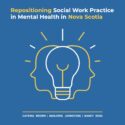
May 14, 2022 — NSCSW leadership will present the College’s annual report, including an overview of the organization’s activities in 2021, fiscal review, and proposed budget for 2023.

May 14, 2022 — NSCSW leadership will present the College’s annual report, including an overview of the organization’s activities in 2021, fiscal review, and proposed budget for 2023.

May 13-14, 2022 — In a world where everything has changed, and is changing, our professional mandate to work toward social justice is more relevant than ever, and invites us to consider our unique role as social workers in leading necessary and long-awaited transformation. Our annual 2-day conference in May virtually gathers Nova Scotia’s social work community to explore new perspectives and skills to deliver crucial services in a changed landscape.

May 12, 2022 — Members are invited to discuss, debate, and vote on regulation and policy regarding private practice, sexual misconduct, and clinical social work.
April 12, 2022 — The registration of Ryanne Rhodenizer was revoked in January 2021. She was permitted to reapply after one year, and after undertaking remedial learning. The Board of Examiners has agreed to reinstate Ms. Rhodenizer, with conditions and restrictions.

May 5, 2022 — The NSCSW social justice committee invites mental health social workers to check-in about the goals of the Repositioning report.

April 29, 2022 — Mini-conference on compassionate relational care in health and social sectors through animal-assisted intervention (AAI)

April 28, 2022 — Consultation with NSCSW members on a proposal to regulate clinical social work practice in Nova Scotia. Session open to all NSCSW members.

April 26, 2022 — Consultation with NSCSW members on a proposal to regulate clinical social work practice in Nova Scotia. Session for NSH/IWK employees.

March 25, 2022 — Participants in Advocacy Day and other interested community members are invited to sign an open letter that will be sent to government leaders.

March 24, 2022 — As National Social Work Month comes to an end, NSCSW Council President Lynn Brogan offers a reflection on the theme of this year’s celebrations, and the core values of the profession.
CONNECTION is the official newsletter of the Nova Scotia College of Social Workers.